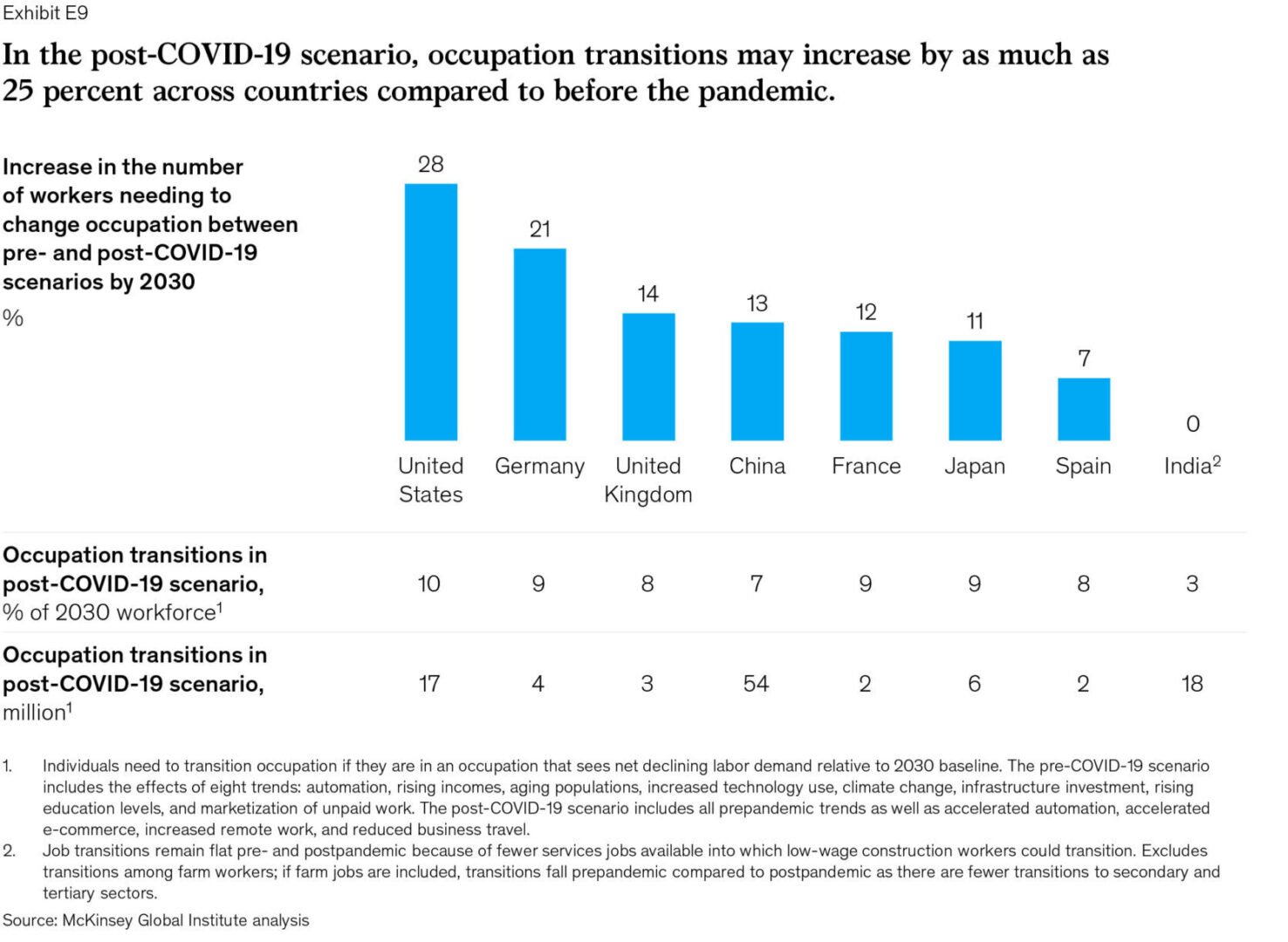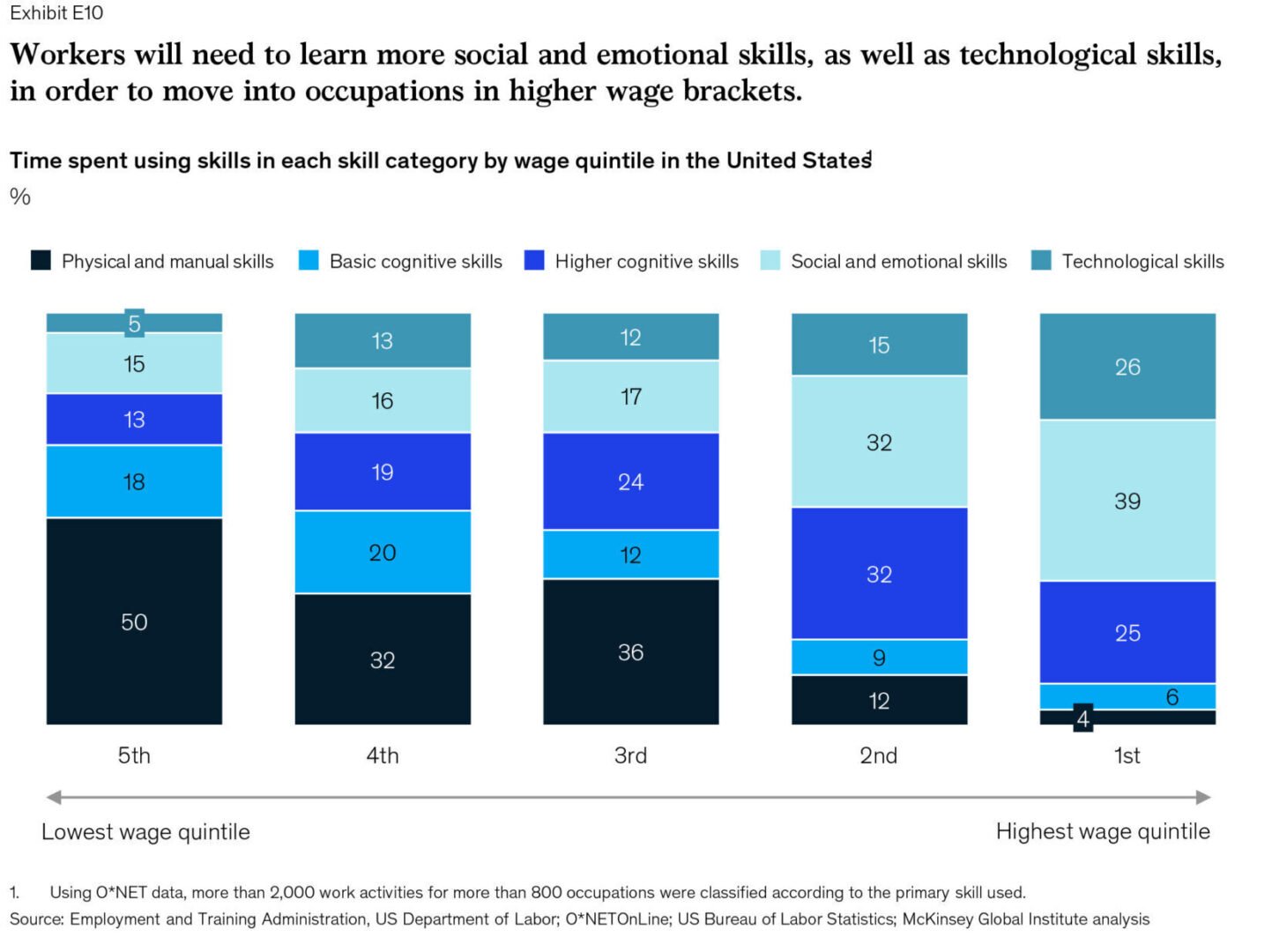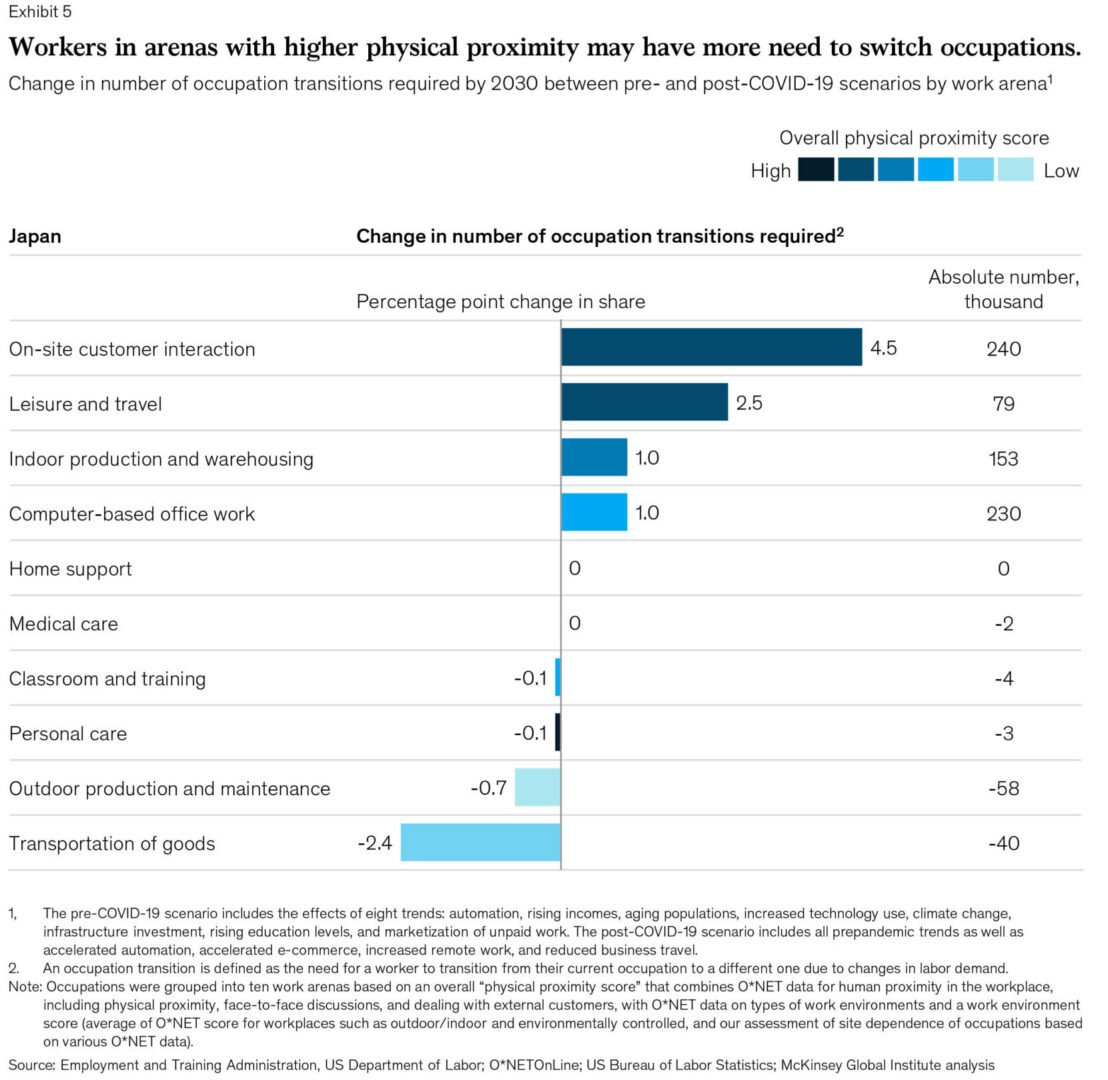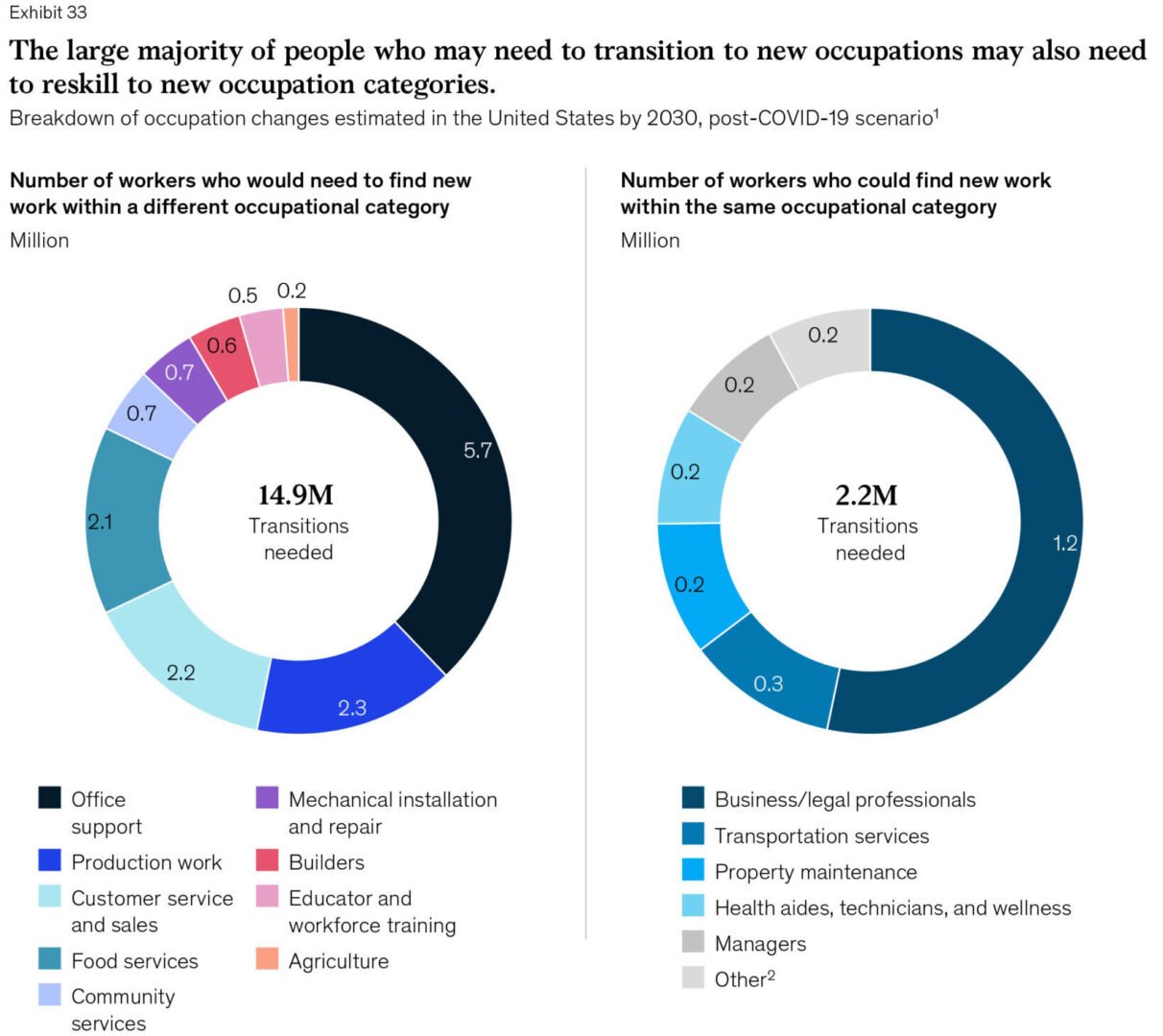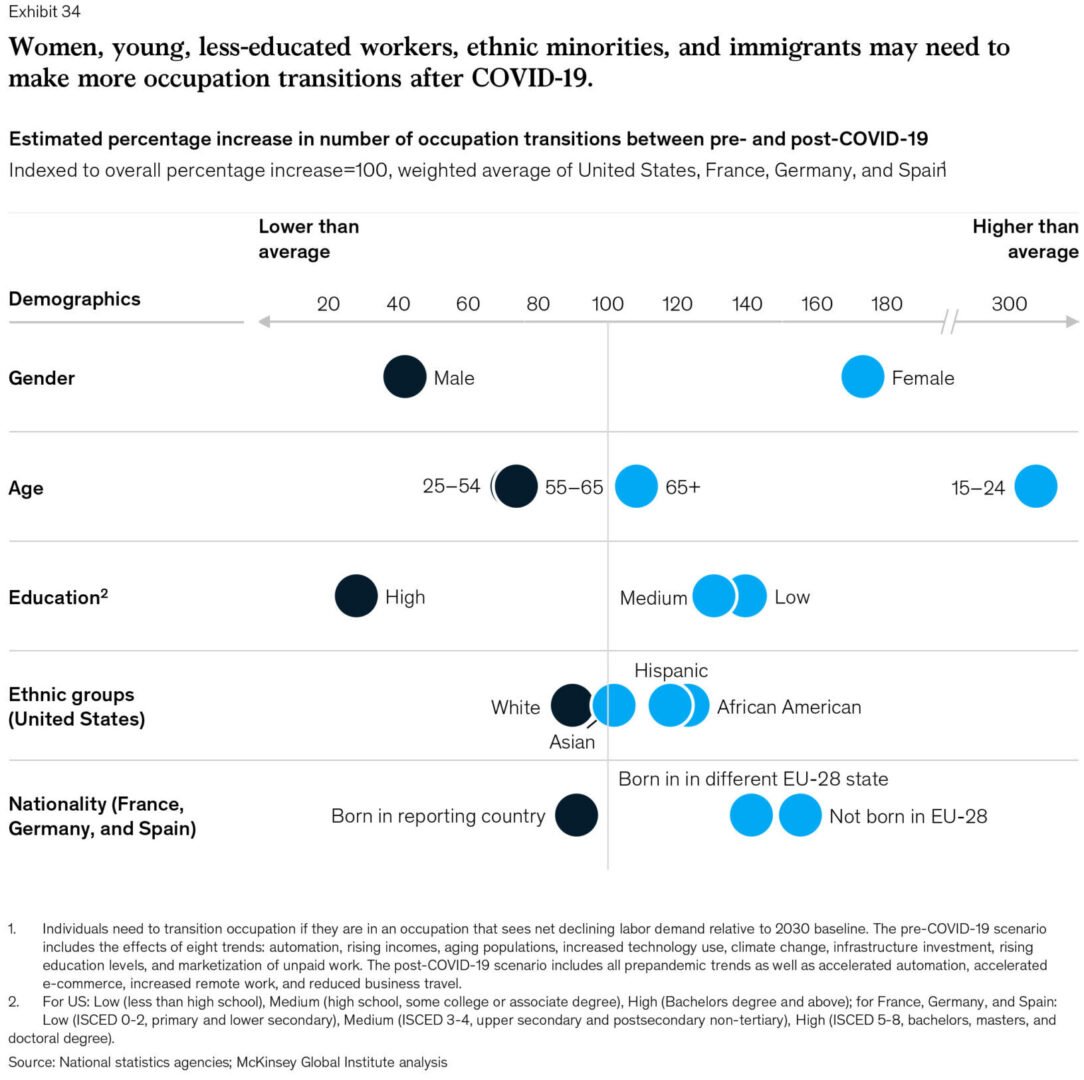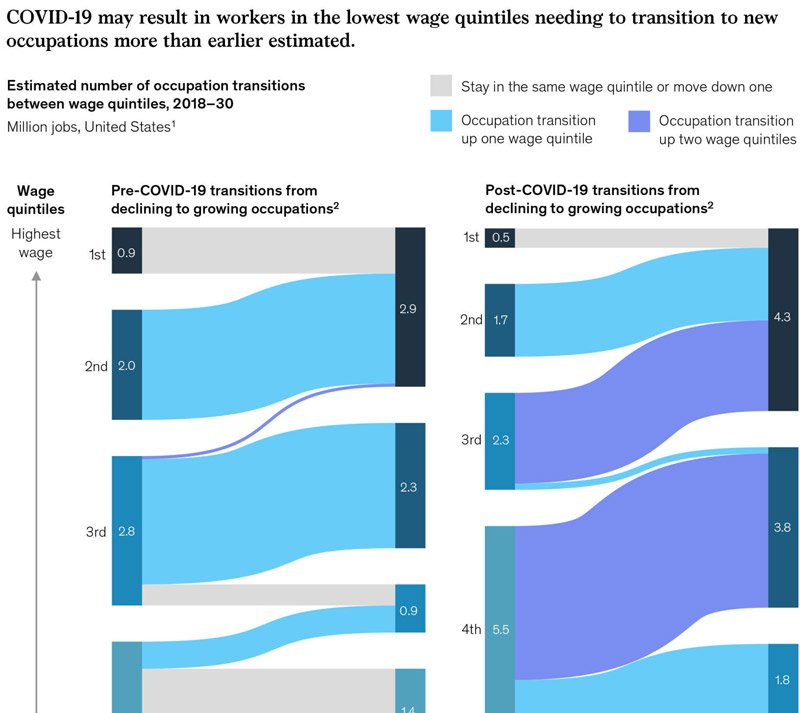Home > Show me why it’s important
100M
workers may need to switch occupations by 2030
2/3
executives expecting to increase investment in automation and AI
The mix of occupations may shift, with little job growth in low-wage occupations
COVID-19 may fast forward changes in the mix of jobs within economies than were estimated before the pandemic.
Executives report accelerated digitization and automation since the outbreak of COVID-19.
For your occupation, or the one you are preparing for, what will the impact due to digitization?
Click Here to view the interactive map from McKinsey.
Occupation transitions may increase by as much as 25 percent by 2030 with more retraining challenges
The largest net growth is likely to be in healthcare, STEM, and transportation jobs.
The largest declines in customer service jobs in retail and hospitality, food service, production work, and office support roles.
Need to learn more social, emotional, and technological skills, in order to move into occupations in higher wage brackets.
Faster speed of change in technological skills one needs to learn.
Wider spread of social and emotional skill one needs to learn and master.
Do you know what you need to learn and in what priority?
Do you know there is a way to learn 10X faster and better?
Click Here to register for a FREE webinar to learn how to learn faster and better social skills, emotional skills, and technological skills.
Click Here to view the executive summary and Here to view the detailed report from Mckinsey.
Workers in arenas with higher physical proximity may have more need to switch occupations.
Workers in more customer interaction arenas may need to retrain or gain additional skills or education in order to transition to more secure occupations by 2030.
Some work arenas see little change in the number of necessary occupational changes required in the post-COVID‑19 scenario.
Will your occupation require more occupation transitions?
If you are planning a career transition, how will you know your next move is the right one?
Click Here to register for a FREE webinar and understand how Genius Unlocked can help.
Click Here to view the executive summary and Here to view the detailed report from Mckinsey.
Most people who may need to transition to new occupations may also need to reskill to new occupation categories.
14.9 Million workers who would need to find new work within a different occupational category.
2.2 Million workers could find new work within the same occupational category.
If you need to find work in a different work category, how much time do you have to learn a new skill and be proficient in it?
Click Here to register for a FREE webinar to learn how to learn faster and better social skills, emotional skills, and technological skills.
Click Here to view the executive summary and Here to view the detailed report from Mckinsey.
Women, young, less-educated workers, ethnic minorities, and immigrants may need to make more occupation transitions after COVID-19.
In the United States, people without a college degree are 1.3 times more likely to need to make transitions compared to those with a college degree.
Black and Hispanic workers are 1.1 times more likely to have to transition between occupations than white workers.
Are you at risk? What is your plan to mitigate the risk and achieve your goals by learning new skills faster and smarter?
Click Here to register for a FREE webinar and understand how Genius Unlocked can help.
Click Here to view the executive summary and Here to view the detailed report from Mckinsey.
Workers in lower-wage quintiles may need to switch occupations—and the transitions they need to make will be much larger than before the pandemic.
49% increase in workers in lower wage quintiles may need to move to higher wage quintiles.
Strong bearing on new training efforts.
To move to a higher wage quintile, you will need bridge bigger gaps in knowledge and skill. Do you have plan?
Click Here to register for a FREE webinar to learn how to learn faster and better social skills, emotional skills, and technological skills.
Click Here to view the executive summary and Here to view the detailed report from Mckinsey.
Demand for technological and social and emotional skills may grow across all countries.
Automation and AI can increasingly perform tasks related to writing, reading, and quantitative and statistical work, so the demand for workers with these skills is declining.
Demand for basic cognitive skills (literacy, numeracy, and data entry) is projected to decline substantially in seven of our eight economies.
Strong growth for creativity and critical thinking.
Do you have a plan to acquire skills in high-growth areas? Have you gauged the proficiency levels you need to be employable?
Click Here to register for a FREE webinar and understand how Genius Unlocked can help.
Click Here to view the executive summary and Here to view the detailed report from Mckinsey.

